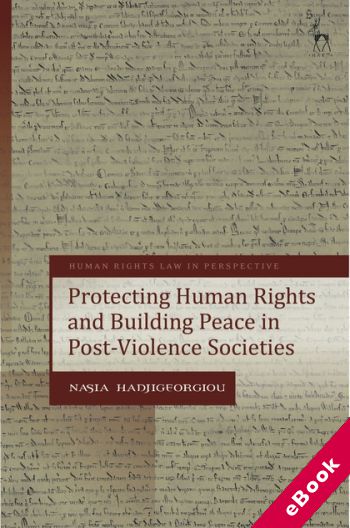
The device(s) you use to access the eBook content must be authorized with an Adobe ID before you download the product otherwise it will fail to register correctly.
For further information see https://www.wildy.com/ebook-formats
Once the order is confirmed an automated e-mail will be sent to you to allow you to download the eBook.
All eBooks are supplied firm sale and cannot be returned. If you believe there is a fault with your eBook then contact us on ebooks@wildy.com and we will help in resolving the issue. This does not affect your statutory rights.
This book critically examines the relationship between protecting human rights and building peace in post-violence societies, and explores the necessary conditions that must be present, and strategies that must be adopted, for the former to contribute to the latter. It argues that human rights can assist peacebuilding efforts by helping victims of past violence articulate their grievance and encouraging the state to respond to and provide them with a meaningful remedy. This usually happens either through a process of adjudication, whereby human rights can provide guidance to the judiciary as to the best way to respond to such grievances, or through the passing and implementation of human rights laws and policies that seek to promote peace. However, this positive relationship between human rights and peace is both conditional and context-specific. Through an interdisciplinary and comparative analysis of four case studies, the book identifies the factors that can support the effective use of human rights as peacebuilding tools. Developing these, it recommends a series of strategies peacebuilders should adopt, and considerations they must keep in mind, to ensure that human rights indeed help build peace.